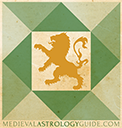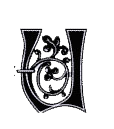Ague- An intermittent fever accompanied by fits of chills followed by sweat. Attributed to the malaria virus. Oftentimes the word is used to simply indicate periods of cold sweats.
Apoplexy- More commonly known as a stroke. A period of sudden unconsciousness which is usually followed by paralysis in some member of the body.
Aposthume- A swelling filled with puss or other virulent matter, contemporarily referred to as an aposteme or abscess.
Black Jaundice- Leptospriosis
Blood-letting- A treatment involving cutting the vein of a patient to bleed them of excessive humours. Also called "venesection" and "phlebotomy".
Bloody Flux- Dysentery. A discharge of blood in loose, runny stools.
Bubos- Buboes or Bubonic. An enlarged or inflamed lymph node, particularly in the armpit or groin. Typically acquired from plague or from venereal disease.
Bursten- A hernia or rupture.
Calentune- Sunstroke or heatstroke.
Cast- Coagulated protein or mineral deposits that takes the form of a cavity in the body; usually the intestinal, vaginal, or renal.
Catalepsy- A sudden trance-like state, characterized by a loss of voluntary motion of the limbs. The patient will maintain the position they are placed in like a mannequin.
Child-blain- Chilblain. Inflammation, rash, or itchy irritation of the extremities, often from overexposure to coldness or moisture.
Chin-cough- Whooping cough
Clyster- See glyster. An enema.
Cod- Scrotum
Colic- Internal pains which begin and end abruptly. Caused by contractions of hollow tubes attempting to force out blockages. Also commonly used to describe pain and discomfort from gas or bloating.
Consumption- Tuberculosis. An infectious disease which attacks the lungs. Characterized by a chronic dry cough with blood often present in the spittle.
Discuria- Difficulty in either initiating urination or in completely emptying the bladder.
Dog-hunger- An insatiable desire for food or drink.
Dogmatists- A school of ancient medicine which followed very heavily the writings and philosophies of Hippocrates. Defining features include the four humors, the primary qualities of heat, coldness, moisture, and dryness, and the focus on identifying the cause of the illness to determine the most effective treatment.
Dropsy- Edema. An accumulation of fluid between the layers of the skin and the body cavity.
Dumb Palsy- Sudden loss of the ability to speak, often symptom of a stroke.
Empiricist- A school of ancient medicine which stressed experiment and personal experiences over recorded theories. These doctors would attempt to treat unknown or unfamiliar illnesses like previously encountered diseases that exhibited similar symptoms.
Ephialtes- Nightmares, but perhaps better applied to sleep paralysis.
Evil Disposition of the Body- Cachexia
Falling Down of the Fundament- Prolapsed rectum.
Falling Sickness- Epilepsy.
Flux- An excessive discharge of fluid from the body. Most commonly used to describe diarrhea but sometimes used to indicate bilious vomiting.
French Pox- Syphilis. A sexually transmitted infection that, if unsuccessfully treated, can lead to cardiac and neurological symptoms. So-called due to its supposed origins in France.
Frets- A name given to the behavior of young children when they become fussy due to colic.
Glister- Enema. Also written clyster. A fluid injected into the lower bowels via the rectum. Often used to treat digestive disorders like constipation.
Gravel- Kidney or bladder stones.
Greensickness- Anemia, so-called due to the greenish-yellow complexion that often results in severe cases.
Hot Stomach: Heartburn or acid reflux.
Hydropic- Containing excess water.
Iatrochemist- A group of physicians who championed the use and development of chemical treatments for disease as opposed to standard treatment involving herbal remedies.
Iatromathematician- A word used to describe physicians who utilized astrology to diagnosis and treat patients.
Iliack Passion- Intestinal obstruction.
Iscuria- Urinary retention.
Issue- A treatment involving the creation of a small ulcer with a hot iron or lancet, used to evacuate superfluous humours.
Kibe- Chapped area of the skin, especially on the heel or toe. A result of extreme coldness or dryness.
King's Evil- Scrofula. A lymphatic infection in the neck. Thought to only be cured the touch of a reigning monarch.
Lask- Diarrhea.
Lassitude- Weakness, exhaustion
Liver-grown- Having an enlarged liver
Lousy Evil- An overall poor quality of hygiene that leads one to be an excellent breeding ground for skin and hair parasites such as lice and crabs.
Meagrille- Measles.
Megrim- Migraine headaches.
Methodist: A school of ancient medicine which stressed the apparent disease rather than any likely cause or patient history. This school taught that a disease ought to show its cure and so knowing the disease was enough to know how to treat it. The typical cause of disease to a Methodist was the ability of particles within the body to flow too quickly or too slowly.
Noli me tangere- A type of ulcer on the skin caused by certain cancers. The condition was said to worsen the more it was handled, so was called by a Latin phrase meaning "touch me not"
Phlebotomy- Another term for bloodletting. A procedure wherein a physician cuts a vein to bleed out excessive humours in the patient.
Phthisicks- Pulmonary tuberculosis.
Physick- Any sort of treatment, remedy, or medicine administered. It can also be used to refer to an individual's knowledge of the field of medicine.
Piles- Hemorrhoids
Pin and Web- Two distinct eye disases; caligo (dimness) and pterygium (a mass of tissue growing from the corner of the eye)
Pissing Evil- Diabetes. So-called due to the symptom of increased urinary frequency.
Pleurisy- Inflammation of the membrane between the lung and chest wall. Often used to describe what we would call pneumonia.
Potherb- An herb whose leaves are often included in a salad, can also be used to indicate that an herb should be taken as food.
Purfy- Short of breath or winded.
Quartan Fevers- Fevers that reoccur every fourth day, counted as 1 2 3 4. Mostly associated with malaria infections.
Quincy- An inflammation of the tonsils, often with a visible abscess.
Quotidian Fever- A fever that occurs daily. Associated with the most malignant of malaria infections.
Rationalist- See Dogmatist
Rickets- Defective calcification of bones. Weight-bearing bones appear deformed. Mostly occurs in childhood.
Redgum- Strophulus; a rash marked by red or white papules on the face, neck, and arms of infants, associated with teething distress
Rising of the Mother- A trancelike, unresponsive state thought to be brought on by hysteria.
Running of the Reins- A genital discharge that looks similar to gelled urine. A symptom of several venereal diseases.
Schirrus- Hard, dense growth on or between connective tissue in the body. Can often refer to a hardening of an organ wall and is often used to describe cancerous tumors.
Sciatica- Pain related to the sciatic nerve located from the lower back to the foot. Often a symptom of diabetes.
Seton- A strip of cloth drawn through a hole surgically created in the skin which is then moved back and forth to encourage drainage of puss.
Splenetic- A disorder of the spleen. Also used to describe an individual in a sour mood thought to be brought on by an abundance of black bile due to a dysfunctional spleen.
Squinzy - Another term used for quinsy; tonsillitis.
Standing of the Yard- Priapism
St. Anthony's Fire- Upper dermis infections.
St. Vitus's Dance- Sydenham's chorea. Rapid and uncoordinated jerking of the face and limbs, often a symptom of rheumatic fever.
Stranguria- Slow, painful urination caused by muscle spasms.
Tertian Fever- A fever which reoccurs every third day, counted as 1 2 3. A symptom of malaria infection.
Terms- When used in reference to women, menstruation.
Tetters- A term for any number of skin conditions characterized by eruptions or itching such as eczema, or psoriasis.
Theriac- A super-medicine of ancient times, said to remedy all poisons and a multitude of other common illnesses. Often used by royalty as a preventative medicine. Another distinguishing feature of theriac is that it was made from as many as over 100 ingredients.
Travail- The pain of childbirth.
Tymphany- A hollow sound produced when a gas or fluid filled cavity is thumped.
Uxulceration- Exulceration. The formation of an ulcer.
Venesection- Another term for blood-letting. A popular procedure intended to drain the patient of excessive humours.
Victual- Foods.





















